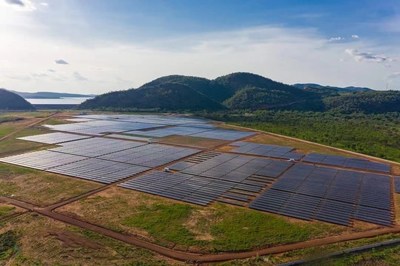Women account for most of Africa’s agricultural workforce and acutely feel the burdens of climate change, but too often their voices go unheard in farming- and climate-related policymaking and programs.
That’s just one of the assessments a United Nations official shared in light of Tuesday’s U.N. observance of International Women’s Day.
“Women make up 80% of the people displaced because of natural disasters, and 14% more are likely to die in the event of a natural disaster,” said Mehjabeen Alarakhia, the U.N. Women regional adviser for women’s economic empowerment for East and Southern Africa. U.N. Women is an agency dedicated to gender equality and the empowerment of women.
“Similarly, women’s disproportionate burden of unpaid care and domestic work implies that they are commonly responsible for fetching water or collecting cooking fuel. With the increased climate incidences, women need to invest more time to meet their family’s needs.”
Alarakhia spoke with VOA about climate challenges, agriculture, education and women’s leadership as part of this year’s theme: “gender equality today for a sustainable tomorrow.”
The interview has been edited for clarity and concision.
VOA: How far have African women in particular come in terms of calls for their rights and equalities?
Alarakhia: I think African women were instrumental in advocacy and activism leading up to the Beijing conference in 1995 (the U.N.’s Fourth World Conference on Women), creating the landmark global agreement on women’s equality and empowerment. African women are starting to take leadership in political arenas. We also see it in women’s participation in education and research, various public and economic spheres. I do believe there’s still quite some work to do, but there has been progress.
What is the relevance to Africa of the theme “gender equality today for a sustainable tomorrow”?
The high dependence on agriculture also means that women are highly exposed and vulnerable to the effects of climate change and disasters. Women represent 90% of agricultural employment in many African countries.
With women and men having different access to productive resources, other inequalities can follow, such as access to improved seeds, fertilizers, pesticides, tools and equipment, labor, credit, and other production factors.
Women are disproportionately affected by climate change, environmental degradation and natural disasters. Women may need to walk farther to fetch water, exposing them to increased time poverty but also to further risks of gender-based violence.
What role does U.N. Women play in empowering African women to participate in key decision-making corridors for the continent’s sustainability?
U.N. Women is advocating for increased space for women’s rights activists and women themselves to be part of negotiations and discussions with policymakers and decision-makers to be able to have their voices heard directly.
We also collect data and analyze trends so decision-makers can base policy on reliable data and research.
What policies and programs should Africa’s local governments pursue in light of climate concerns?
The key aspect is including women in the planning and decision-making processes. Women generally are aware of their own needs and know how to articulate them.
We have recently completed a study that looked at government spending on agriculture.
Governments in Africa had committed to allocate 10% of their national budgets toward agriculture. We found that where women were not included in planning, they were not able to benefit. But in countries where the allocation did not reach the 10% target and yet women were part of planning, they were more likely to benefit from the allocations — and the interventions were more sustainable.
In most parts of the continent, the percentage of women in political offices where key decisions are made continues to be low. Is this stalling efforts to promote gender equality?
It is very important for women to be at the table as decision-makers. We have some countries where the proportion of women in parliament, for example, is among the highest in the world. (In Rwanda, women hold 61% of the lower house’s seats.) Then elsewhere, we have relatively low participation rates. It is pertinent for women to be in that space, to be role models and champions for the next generation.
Experts advocate for more STEM (science, technology, engineering and mathematics) education for women and girls. Is this critical for sustainability?
In terms of the fourth industrial revolution and the agricultural transformation necessary to mitigate effects of climate change, it’s absolutely important for girls and women to be part of this change.
We did a recent study that found an estimated 24 million jobs will be created in the green economy over the next decade.
Most will be in STEM fields. We need to ensure that women, and particularly young women, are given the skills to take these jobs.
In another study on opportunities for rural youth, we found that even in agriculture, the future is in digital technology. We have looked at bringing in programs such as our ”African girls can code” initiative, teaching them how to code and make apps. Some have gone on to become entrepreneurs. This is truly the space that will be growing in employability and profitability.
Source: Voice of America
 Wu Guangwen (PDG – Meinergy), Zhou Wei (directeur général – Bureau de représentation de Huawei au Ghana), et Fang Liangzhou (vice-président et directeur du marketing – Huawei Digital Power), ont assisté à la cérémonie de signature.
Wu Guangwen (PDG – Meinergy), Zhou Wei (directeur général – Bureau de représentation de Huawei au Ghana), et Fang Liangzhou (vice-président et directeur du marketing – Huawei Digital Power), ont assisté à la cérémonie de signature. Meinergy est au Ghana depuis de nombreuses années, et ses activités couvrent les secteurs de l’exploitation minière, de l’énergie électrique et du photovoltaïque. Dans le contexte de la transformation du mix énergétique mondial, Meinergy a développé énergiquement ses activités dans le domaine des énergies renouvelables au Ghana et dans d’autres pays d’Afrique pour fournir une énergie verte stable aux communautés locales et combler le fossé lié à l’électricité.
Meinergy est au Ghana depuis de nombreuses années, et ses activités couvrent les secteurs de l’exploitation minière, de l’énergie électrique et du photovoltaïque. Dans le contexte de la transformation du mix énergétique mondial, Meinergy a développé énergiquement ses activités dans le domaine des énergies renouvelables au Ghana et dans d’autres pays d’Afrique pour fournir une énergie verte stable aux communautés locales et combler le fossé lié à l’électricité.

